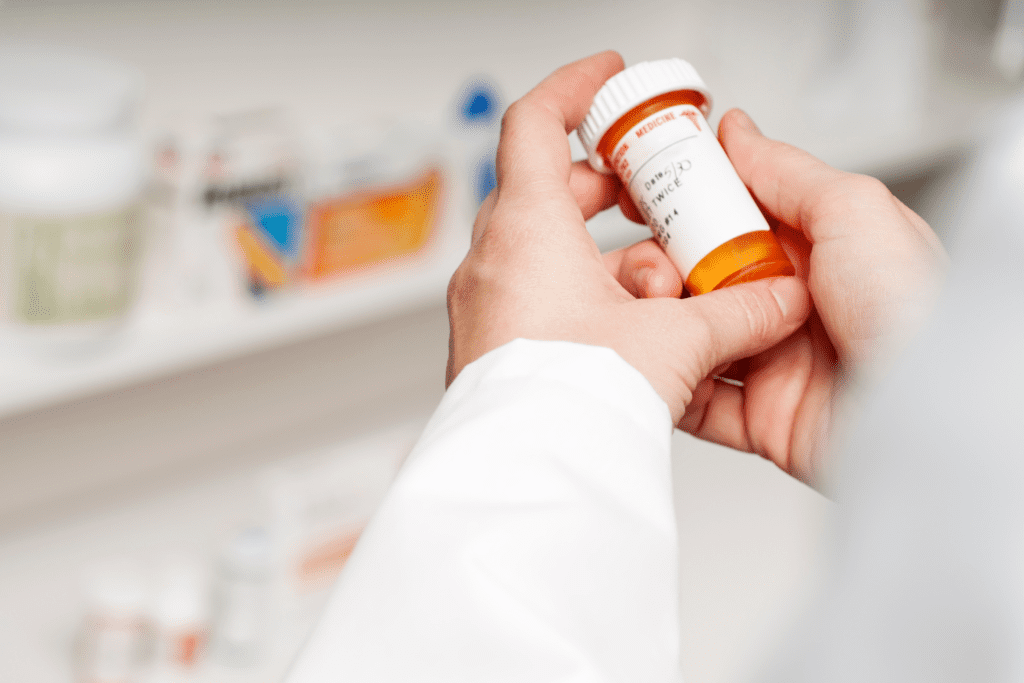Test to Treat Provides Free, Same-Day COVID-19 Treatment to At-Risk Individuals

NOTE: This COVID-19 post is over a year old and may contain outdated information. It has been left up for archival purposes only. For the most up-to-date information on masking, vaccines, and more, visit the CDC’s website.
While vaccination remains the best way to prevent severe COVID-19 illness and hospitalization, life-saving therapies are now available to help treat high-risk individuals who do get sick.
Test to Treat is a new initiative helping people access quick and free COVID-19 treatment. Those who test positive can see a health care provider and, if eligible, get a prescription for an oral COVID-19 treatment and have that prescription filled — all at one convenient location.
Anyone interested can also make an appointment with their regular doctor for testing and treatment, if preferred. However, these Test-to-Treat locations offer a way to reduce wait-times for this life-saving medication, including for individuals who may not have insurance or a regular doctor
This program prioritizes individuals at high risk for severe disease from COVID-19. Treatments are most effective when taken within five days after symptom onset, which is why it’s imperative to visit your doctor or a Test to Treat clinic for treatment immediately if you have symptoms and are at risk of getting very sick. Learn more about Test to Treat here.
How it Works
Step 1: Get Tested
Get tested for COVID-19 at a Test to Treat site or bring your test results from an at-home test, a pharmacy, or your healthcare provider with you to your visit.
Use the web-based Test to Treat locator to find a participating site near you. You can also call 1-800-232-0233 (TTY 1-888-720-7489) to get help. The Disability Information and Access Line (DIAL) is also available to help people with disabilities access services. To get help, call 1-888-677-1199 or email DIAL@usaginganddisability.org. Interpretation is available.
Step 2: See an On-Site Healthcare Provider
If you test positive for COVID-19, ask the on-site healthcare provider during your appointment if you are eligible for a prescription for a COVID-19 oral antiviral treatment. Bring any medications you are currently taking (or a list of them) to your appointment.
Step 3: Get a Prescription
If you are eligible for treatment, ask the on-site or affiliated pharmacist to fill the prescription. Once your prescription is filled, you can take your oral antiviral pills with you to begin treatment!
Staying up-to-date with COVID-19 vaccines (primary series plus booster when eligible) can help prevent severe illness; for those at high risk, oral antiviral treatments can help further reduce disease severity. Unsure if you’re eligible for COVID-19 treatment? Talk to your healthcare provider, or visit a Test to Treat clinic.
Frequently Asked Questions
Is there a cost for COVID-19 treatment?
There is no cost for COVID-19 oral antiviral treatment through your healthcare provider or one of the Test to Treat clinics. Individuals can receive treatment regardless of insurance or immigration status.
Can I go through my regular healthcare provider?
Yes! Qualified healthcare providers can continue to prescribe oral antivirals to eligible patients at increased risk of developing COVID-19, including via telehealth visits. Patients can have prescriptions filled at pharmacies with antivirals in stock.
What medications are available through the Test to Treat program?
The Test to Treat program includes two oral antiviral pills Pfizer’s Paxlovid and Merck’s Lagevrio. People at risk of serious COVID-19 that have tested positive for COVID-19 within the past 5 days may want to consider taking prescription oral antivirals. You may qualify for one of these COVID-19 treatments depending on your age, health history, and how long you have had symptoms.
Find more information about treatment eligibility here: What are Oral Antivirals?
How does oral antiviral medication work?
Oral antiviral treatment may help your body fight COVID-19 by stopping the SARS-CoV-2 virus (the virus that causes COVID-19) from multiplying in your body, lowering the amount of the virus within your body, or helping your immune system. Early treatment can potentially improve your symptoms and/or reduce your risk of your illness getting worse and requiring hospitalization.
Archives
- July 2025 (1)
- June 2025 (3)
- April 2025 (2)
- February 2025 (1)
- January 2025 (2)
- December 2024 (1)
- September 2024 (2)
- August 2024 (2)
- July 2024 (1)
- June 2024 (1)
- February 2024 (1)
- July 2023 (1)
- March 2023 (1)
- October 2022 (1)
- September 2022 (1)
- August 2022 (1)
- July 2022 (2)
- June 2022 (2)
- May 2022 (1)
- April 2022 (4)
- March 2022 (1)
- February 2022 (1)
- January 2022 (2)
- December 2021 (4)
- November 2021 (3)
- September 2021 (2)
- August 2021 (3)
- July 2021 (2)
- June 2021 (1)
- May 2021 (2)
- March 2021 (1)
- December 2020 (6)
- November 2020 (8)
- October 2020 (4)
- September 2020 (7)
- August 2020 (3)
- July 2020 (11)
- May 2020 (2)
- April 2020 (4)
- March 2020 (1)
Categories
- Communicable Disease (4)
- Clinical Services (18)
- Clinical Servcies (1)
- Health Promotions (72)
- Emergency Preparedness (8)





